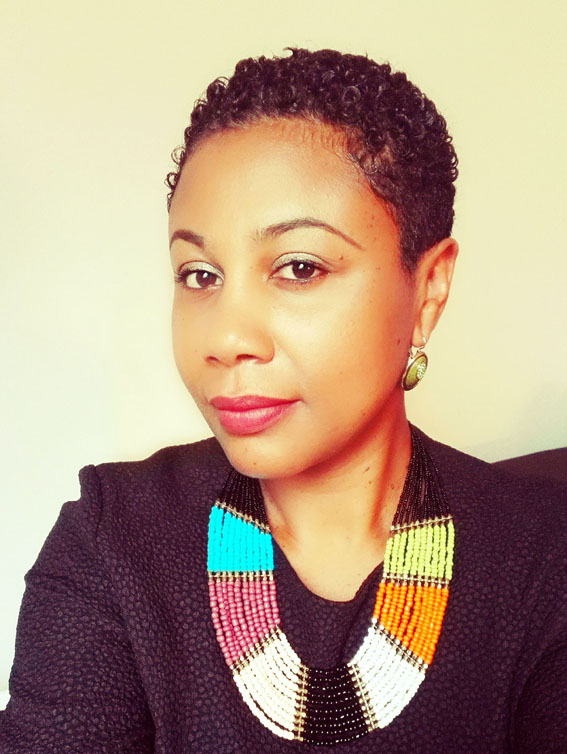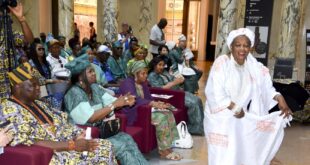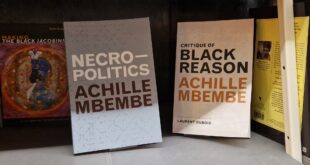Can African writers in the Diaspora simply be writers who write as they are inspired without checking if they are stepping beyond boundaries? Should writers have any geographical or ethnic boundaries at all? These are questions that African writers, who seemingly have to fulfil the conventional expectations of readers on what they’re supposed to write about, are confronted with. Using her writing experience, Germany-based Tanzanian author Gloria Gonsalves answers the questions.
When you keep hearing something, at some point you will begin to believe it is true. Whether this holds true or not, I can only testify using my writing experience.
It began with a fellow African telling me that my children’s book Danloria: The Secret Forest of Germania is not African. That perception rippled to a doubting perception of my written work, especially when it was rejected by particular platforms, magazines and competitions.
The doubting opinion continued its effect by leading me to certain stereotype behaviour; that is, before submitting my work I checked whether the receiver was Black or White.
One day, I stopped and asked myself: is it important to write for a child of particular race? Can I honestly nurture my writing imagination using geographical boundaries and ethnicity limits? If the dwarfs of a forest in Germany prompted me to write about a boy and the magical forest, was it an honourable decision for me as a writer who wishes to serve others with storytelling to disagree?

I continued writing and encountered other challenges. Some are universal and others not. For aspiring writers, I have a letter for you. And yes, it does draw examples from areas which may not be identified as purely African.
Dear aspiring writer,
My job as a writer is neither to seek fame nor bestseller spots so that you can chase to meet or beat that success. I am a writing knight, determined to pave and clear an obstructed literary path for you, the aspiring writer. I am also a writing Templar, who serves those keen to read words.
My serving ideal is to protect imagination. My code of conduct is to be in places that are forbidden by perception and expectation. I represent writing valour and continue to do so even when confronted by surrender. The attacks are endless. Sometimes it is a fleet of forces believing that a writer should stick to a certain genre. Other times it is mercenaries beheading any word which does not resemble their perception of you. Most times it is a brigade of conventions that silence the writing voice with literary rules.
Indeed, I have not been spared from provocations and testing acts. Sometimes I experimented with raving and ranting. But I was left exhausted and without vigour. I grasped that my knighthood was served best when it instigated divine changes in other people.
Occasionally, I test myself with out-of-order legions. It helps me value what I do better – inspiring others. To date, I keep writing to serve that ideal.
You may never have heard of or read me. Nevertheless, I am here encouraging you to look where you didn’t or were discouraged to stop looking. Whether it was a panel of marauding judges who decided your writing didn’t fit the standard calibre or ruthless readers who victimised you with their mainstream expectations, you have to stand up and defend your muse. There was a reason it came to you. Serve that honorary purpose.
The writing life is divided into three main orders: (a) the writing knight, who opens the way for aspiring writers; (b) the writing templar, who pledges to serve others with written words without fame and success; (c) the writing garter, who is prominent and famously celebrated.
There is nothing wrong with any of these. They are different battalions serving the writing legion.
As writers, we cannot all fit in one order. Your job as a writer is to be one, two or all of these three. Stop comparing your order of writing to others. Focus on maintaining and passing on the concept of your order so it lives on. There is bound to be reworking of these orders in the future. But for now, be proud of your order. Whether your writing order is legend or obscure, let your sword be your pen, your curiosity your armour and your horse open-minded.
–––––––––
Gloria D. Gonsalves is a self-taught creative writer and the founder of the World Children’s Poetry Day (WoChiPoDa), an initiative aimed at instilling the love of poetry in young people. She writes during her spare time. Her work has appeared in various literary magazines, platforms and journals. Occasionally, she writes opinion pieces for newspapers. She holds a Master of Science (MSc) in Environmental Sciences, a Bachelor of Science (BSc) in Tourism Marketing and a Diploma (S.A.C Dip) in Professional Proofreading and Editing.
You can find her online at www.auntieglo.com
 THE AFRICAN COURIER. Reporting Africa and its Diaspora! The African Courier is an international magazine published in Germany to report on Africa and the Diaspora African experience. The first issue of the bimonthly magazine appeared on the newsstands on 15 February 1998. The African Courier is a communication forum for European-African political, economic and cultural exchanges, and a voice for Africa in Europe.
THE AFRICAN COURIER. Reporting Africa and its Diaspora! The African Courier is an international magazine published in Germany to report on Africa and the Diaspora African experience. The first issue of the bimonthly magazine appeared on the newsstands on 15 February 1998. The African Courier is a communication forum for European-African political, economic and cultural exchanges, and a voice for Africa in Europe.

























